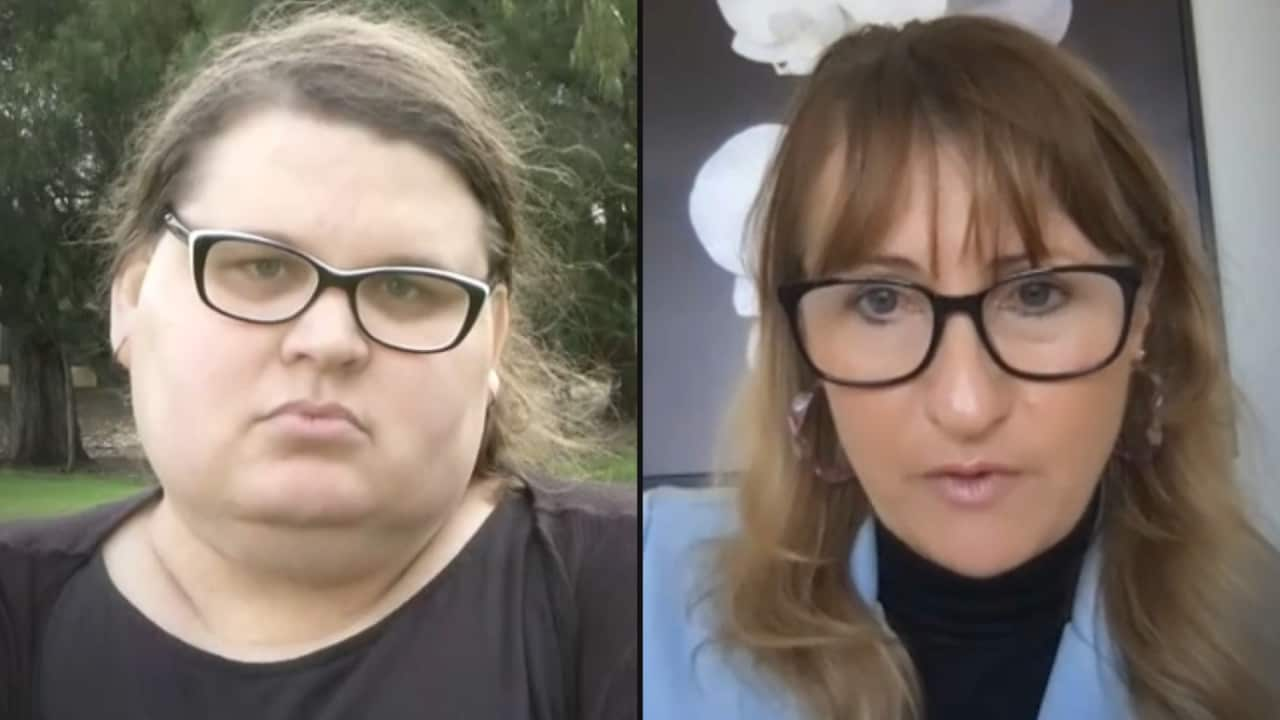KEY POINTS
- The Robodebt inquiry's final report concluded that the rate of welfare payments should be raised.
- This should be done in lieu of a compensation scheme, which would be too complex to establish, it said.
- Welfare groups want payments raised immediately, but one says compensation is still a necessity.
Welfare advocacy groups have praised the Robodebt royal commission chief's call to lift the rate of income support payments, but one says it's not a substitute for compensating victims of the "crude and cruel" scheme.
Commissioner Catherine Holmes on Friday that criticised the scheme, implemented by the former Coalition government, as a "crude and cruel mechanism" that was "neither fair nor legal" and "made many people feel like criminals".
The robodebt scheme used income averaging — a method the federal court found unlawful in 2019 — and Australian Taxation Office and Centrelink data to generate social security debts, many of which were completely false.
In , Holmes addressed the issue of compensation. She wrote that she had reached the "reluctant conclusion" that a compensation scheme could not be established because it would be "impossible to devise any set of criteria that will apply across the board".
While not one of her formal recommendations, Holmes wrote that a "better use of the money" would be to "lift the rate at which social security benefits are paid, to help recipients achieve some semblance of the 'security' element of that term".
"Because with financial security comes the dignity to which social security recipients are entitled and to which the Scheme was so damaging," she wrote.
It was a significant point to make, said Kristin O'Connell, a spokesperson for the Antipoverty Centre, which has been calling on policymakers to .
"It's significant that for once a person in power has understood that the root of many problems with the power imbalances we experience is that keeping people in poverty allows us to be used as punching bags," O'Connell said.
But O'Connell does not believe that raising the rate at which social security benefits are paid is a sufficient substitute for setting up a compensation scheme for robodebt victims, because not everyone who was affected currently receives a welfare payment.
She said that while it would not be easy to establish a compensation scheme, it is the responsibility of government to "take on a complex task of ensuring that to whatever degree is possible, some form of justice is done" when "wide-scale harm" has been caused.
"So many people's lives were touched by the scheme, and an adequate social security payment won't even come close to making up for what happened to many of those people," she said.
The nation's peak welfare advocacy body, the Australian Council of Social Service (ACOSS), also endorsed Holmes' suggestion to raise the rate of welfare payments, though it and the Antipoverty Centre have called for different increases.
ACOSS wants to see payments , about the same rate as the age pension, while the Antipoverty Centre wants them increased to the Henderson Poverty line — a benchmark level of income for meeting basic needs that varies depending on household size — as a "triage measure" and then for government to work with welfare groups and those in poverty to develop "a more sophisticated measure of poverty".
ACOSS CEO Cassandra Goldie said in a statement that the government needed to "act now" on Holmes' conclusion.
"We have long said that the rate of JobSeeker and other income support payments are inadequate and push people further into poverty," Goldie said.

ACOSS CEO Cassandra Goldie said the federal government must "act now" and increase the rate of income support payments. Source: AAP / Mick Tsikas
ACOSS had noted Holmes' conclusion on the impracticality of setting up a robodebt compensation scheme and would "continue to examine" the inquiry's findings, Goldie said.
"We are committed to seeking justice for those affected by this horrific abuse of government power," she said.
Hundreds of thousands of members of the robodebt class action received compensation , with Services Australia data released in September last year showing about 45 per cent walked away with less than $100.
Peter Gordon, a senior partner at Gordon Legal which led the legal challenge, told Seven News on Saturday that lawyers at his firm were examining the royal commission's report and would consider "what further legal options might now be available".
SBS News contacted Prime Minister Anthony Albanese's office for comment.










